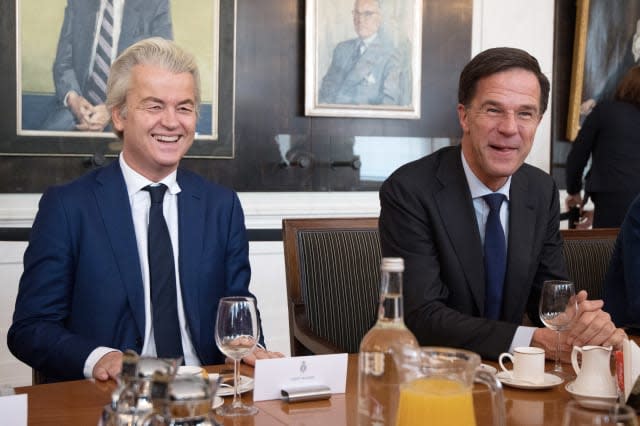What the Dutch election results mean for European politics

Last Wednesday, Dutch voters voted in their general election. Polls immediately before the election had suggested that the PVV, run by the far-right Geert Wilders, was neck-and-neck with the current prime minister, Mark Rutte, and his party the VVD. Wilders had demanded major reductions in immigration from both inside and outside the EU, and had praised Brexit.
There was speculation that his victory could lead to "Nexit" – the Netherlands following Britain out of the EU. Pundits also speculated that the results might also provide some insight as to the upcoming French presidential election, especially whether Marine Le Pen had a large number of "shy" supporters.
In the end, the polls did prove to be wrong, although not in the direction that many anticipated. Rutte's party won the Dutch election easily, gaining 21% of the vote, while the PVV were a distant second with only 13.1%, barely ahead of two other parties. To understand the implications of the election from both a Dutch and a European perspective we decided to speak to Professor Hans Vollaard of the Institute of Political Science at the University of Leiden. Professor Vollaard has written on both Dutch Euroscepticism and European disintegration in general.
Vollaard expects that Rutte, as leader of the largest party, will almost certainly continue to serve as prime minister, though he will need to form a coalition with other parties. Pro-European left-wing parties also did very well. However, he cautions that the results aren't the complete disaster for Wilders that many in the media are portraying it as. Although they didn't come first, the PVV "increased both its share of the vote and number of seats". He also notes that the Forum for Democracy, which also supports Holland leaving the EU, also won seats in the Dutch Parliament.
Vollaard agrees that that many Dutch oppose further integration and worry that Holland is losing its national identity. Indeed, both the rejection of the European Constitution in 2005 and the vote against the EU-Ukraine treaty in 2014, revealed that many people had substantial concerns about the way things were going. He also thinks that there are also going to be enough signatures to trigger a vote over the Canada-EU trade deal, unless the rules are changed to make referenda more difficult (which has been mooted by various parties).
Nonetheless, Vollaard thinks that in general the Dutch are extremely supportive of Europe. Indeed, when it comes to the question of whether Holland should remain a member, even those who consider themselves Eurosceptics take the "pragmatic" attitude that "a small open trading nation needs to be involved in Europe". To support his case, Vollaard points to a Pew poll that shows that 75% of Dutch would regret leaving the EU. While a handful of people support Nexit, "the debate has been essentially settled".
Theresa May will take some comfort from the fact that the Dutch public also want "to retain as close economic links with Britain as possible". Not only does Holland do a lot of trade with the UK, but Dutch fishermen also want to keep access to British fishing waters, something that will be unlikely if both sides take a hard line. Of course, Holland's relatively small size means that, "its ability to influence the debate over Brexit is limited, especially compared to the larger countries like France and Germany". He also notes that Brussels "wants to stick to a strict schedule".
Speaking of France, Vollaard doesn't think that you can necessarily extrapolate from Wednesday's results to the French elections. After all, "French voters will be thinking of French issues when they go to the polls, rather than looking to Holland for guidance". Still, he agrees that Le Pen seems on course to be comfortably defeated in the second round. Even in the unlikely event of her becoming president, her ability to push through policies, such as a referendum on "Frexit", would be heavily constrained by the lack of Front National deputies in the French National Assembly (the Communists are the only other supporters of Frexit). In any case, membership of the euro and Schengen, mean that it would be even more expensive for France to leave.



